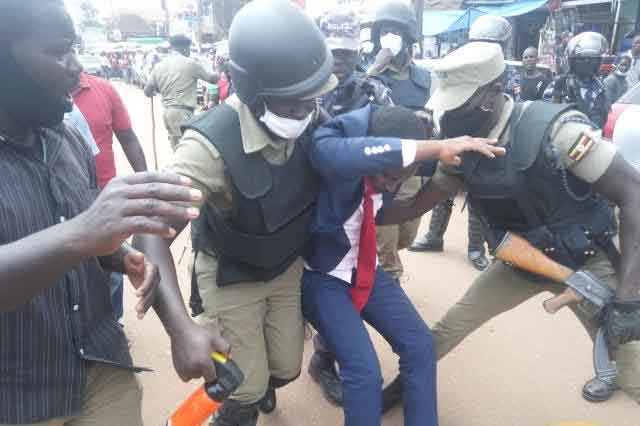By Mukiibi Eric
The subsequent abduction of the accused after the grant of bail by competent Courts with Jurisdiction in Uganda has become a custom. This illegal activity conducted by furious masked armed men in ordinary clothes travelling in tinted vehicles termed as ‘‘drones’’ has been on the lips of citizens in this Country since 2005, the days of Col. Dr. Kizza Besigye.
For example, we observed the abduction of Hon. Allan Ssewanyana of Makindye East Constituency and Hon. Ssegirinya Muhammad of Kawempe North Constituency, who were accused of machete killings in Lwengo and Masaka districts in 2021.
Hon Segirinya was re-arrested outside Kigo prison after Masaka High Court had granted bail, and recently, the Member of Parliament of Busiki County Paul Akamba is a victim who was harshly re-arrested outside the Anti-Corruption Court following his release on bail on 14th/ June/2024.
It is noteworthy that per Uganda Laws Article 28(3)a of the 1995 Constitution amended 2018 as the basic norm, to the effect clearly enshrines that every person accused of a criminal offense is presumed to be innocent until proven guilty.
The burden of proof lies on the State/Prosecutor to the extent of proving beyond reasonable doubt before the trial Judge or the person pleads guilty. Therefore, the former accused due to his innocence is entitled to certain Constitutional rights such as a right to bail application per Article 23(6)a of the Constitution, which envisages personal liberty in that the person is entitled to apply to the court to be released on bail.
The court may grant that person bail on such conditions as the court considers reasonable.
The Constitution (Bail Guidelines for Courts of Judicature) Practice Directions of 2022 define bail to mean temporary release of an accused person who after providing security for future appearance in court on such conditions as the court considers reasonable.
In Uganda there are instant Courts entitled to grant bail with different indispensable pre-requisites depending which court is the applicant appearing before. For instance, section 14 of the Trial on Indictment Act, which governs grant of bail in the High Court stipulates that this tribunal may release the accused on bail with or without sureties, for such an amount as is reasonable in the circumstances of the case, to appear before the court on such a date and at such a time as is named in the bond.
Although Magistrate Courts have jurisdiction to grant bail under the Magistrate Courts Act, some conditions must be put into account, such as the nature of the offence, age of the applicant, healthy status of the accused and among others but to mention a few. Even though this right is not absolute since it is granted by the discretional of the bench, this raises a question as to whether or not it should be violated by other government agencies rather than the Judiciary after being granted as it is observed in the Country.
Otherwise, abduction of accused persons after grant of bail outside court premises symbolizes disrespect of the principle of separation of powers which underscores duties and strength of the Judiciary as an independent organ of government.
About the Author
Mukiibi Eric is a year three semester one student at Nkumba University pursuing a bachelor’s degree in Uganda Laws, former Member of Parliament representing school of Law in the 29th Nkumba Guild Government 2023-2024 and a member of Nkumba Law Research Club.





















Discussion about this post